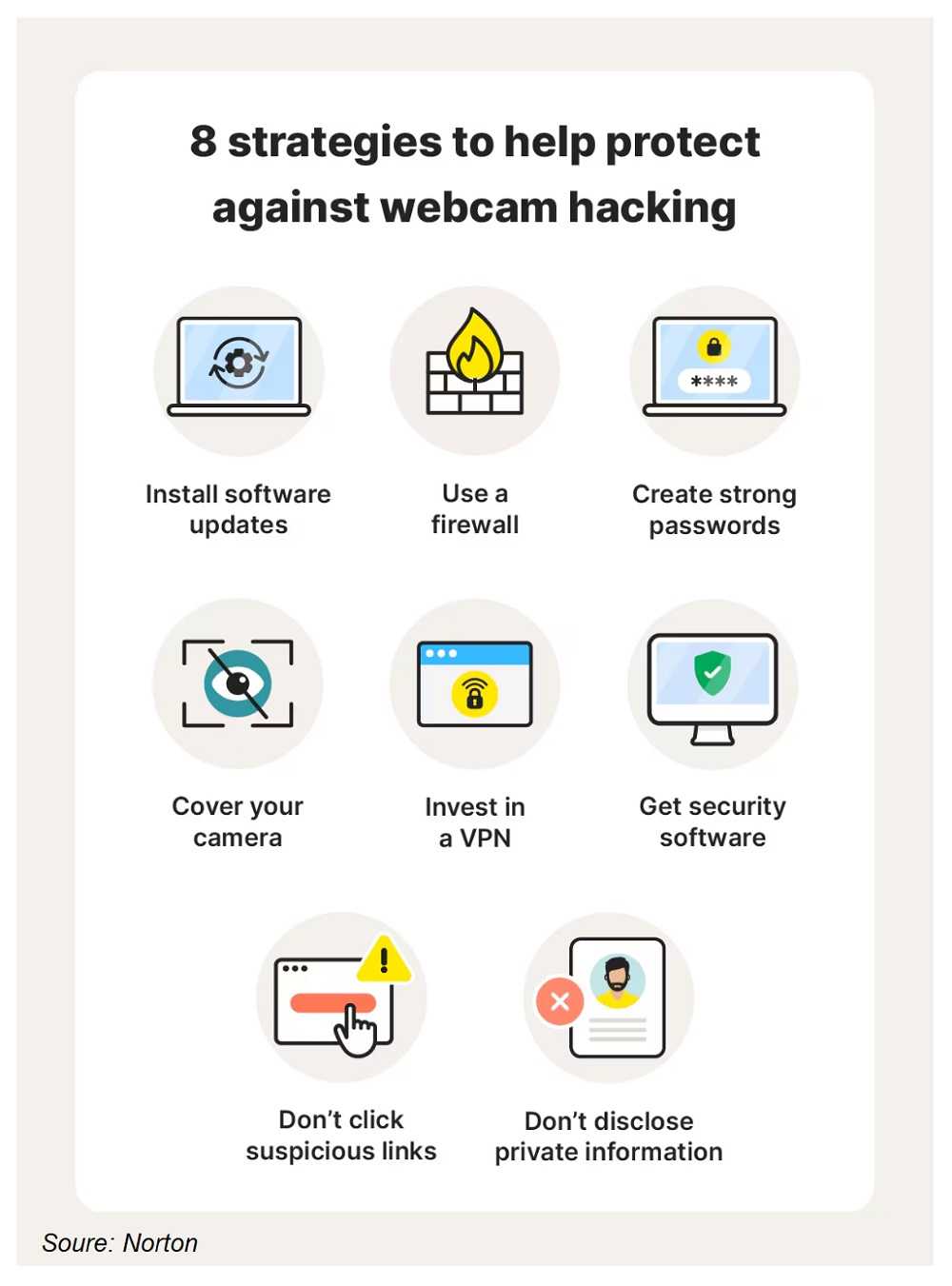Webcam Woes—Are You Being Spied On?
By: Jim Stickley and Tina Davis
September 2, 2025
It’s a creepy feeling no one really wants to think about, but we all need to be aware of it. It’s not that someone’s looking over your shoulder while you’re online, it’s that they’re looking straight at you via your webcam. Below are a few red flags showing your webcam could be compromised.
1. Lights, camera, tape?
If your webcam indicator light is on it means your camera is active, but you know you didn’t do it. If a hacker infected your device with malware, it could explain why they now “own” your camera. The light might also flash on and off sporadically, showing when a hacker is actively watching or not.
 You can disable the camera yourself in “Settings” and check if it turns itself on again. If yes, that too can mean a hacker is behind it. Remember to keep your camera covered when you’re not using it. A simple but great way to keep snoops away is a piece of opaque tape (easily removable painter’s tape works well) covering your webcam. Webcam covers are available too, so the choice is yours.
You can disable the camera yourself in “Settings” and check if it turns itself on again. If yes, that too can mean a hacker is behind it. Remember to keep your camera covered when you’re not using it. A simple but great way to keep snoops away is a piece of opaque tape (easily removable painter’s tape works well) covering your webcam. Webcam covers are available too, so the choice is yours.
2. Message from a hacker
Have you received a message from a hacker lately? If so, extortion is likely the goal, and a bad actor will back up their ransom demand using your personal details. It’s all to scare you into paying up, but It could also mean they’re lying by using details from your social media pages.
3. Strange files and security settings
Some bad actors leave their strange files, photos, and videos behind. That means there’s a good chance a hacker was roaming around your territory via your webcam. Check your device’s trash and also the default storage for your webcam. Look at both for files that don’t belong to you and know it’s another red flag your webcam was hijacked.
Once on your device, hackers can reset your security and antivirus settings in their favor. It makes it easier for them to navigate and install malware without setting off security bells. So, take a good look at your settings for signs your device and webcam are compromised.
4. Is it a phish?
Avoid phishing. Watch for any way that a hacker can get to your webcam in the first place. Avoid clicking links or attachments in email messages if you are not 100% sure they are safe to click. Remember that ANY file type can be used for spreading malware, so just don’t click if there’s even the slightest doubt of its legitimacy.
It’s hard to believe that tiny camera at the top of your device could mean big trouble. Now that you know, you can take back your camera and your privacy and kick those malicious creeps to the curb.